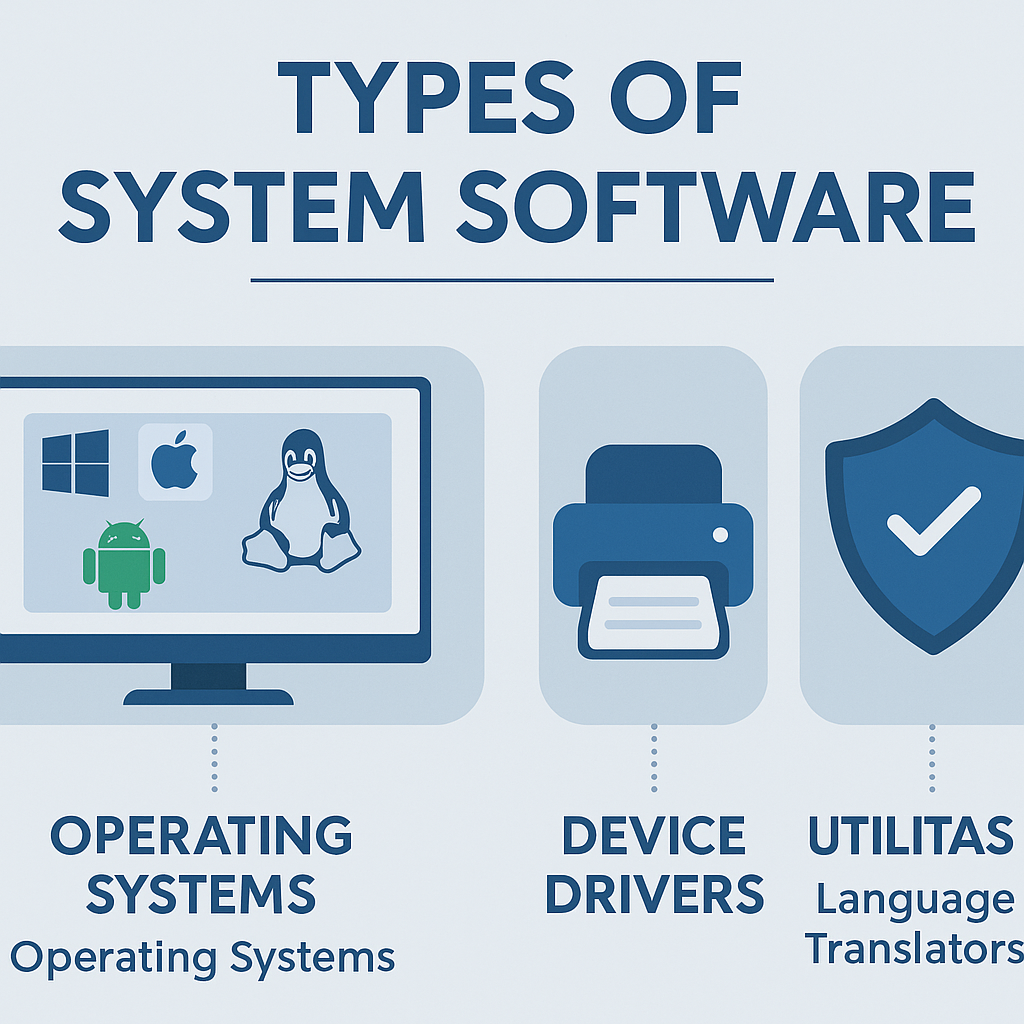System software forms the backbone of your computer’s functionality. Without it, the hardware you see — the screen, keyboard, and memory — would be useless. In this blog, we will explore what system software is, the types of system software, examples like Windows and Linux, and why it’s essential.
What is System Software?
System software is a type of computer program designed to run a computer’s hardware and application programs. It acts as a bridge between user applications and the machine’s physical components.
Common examples include:
- Operating Systems (OS)
- Device Drivers
- Utility Programs
- Language Translators
Key Types of System Software
1. Operating Systems
The operating system (OS) is the most critical system software. It manages all hardware and software on the computer. Popular OS examples include:
- Windows (by Microsoft)
- macOS (by Apple)
- Linux (open-source)
- Android (for mobile)
➡️ Related Link: What is Hardware and Software? Explained
2. Device Drivers
Device drivers allow the operating system to communicate with hardware devices such as printers, monitors, keyboards, and graphics cards.

Utilities
Utilities are programs designed to help users manage, maintain, and control their computers.
Examples:
- Antivirus software
- Backup tools
- Disk cleaners
- File management tools
Functions of System Software
- Manages resources: Allocates memory, processing power, and storage.
- Provides user interface: Offers a way for users to interact with the computer (e.g., graphical UI).
- Runs applications: Helps other software programs run smoothly.
➡️ Related Link: Types of Computer Hardware | Input, Output, Processing, Storage
Why is System Software Important?
Without system software:
- Computers cannot boot or run.
- No applications can work.
- Hardware will remain unusable.
System software ensures everything operates together seamlessly — enabling users to focus on tasks without worrying about technical complexities.
Conclusion
System software plays a fundamental role in running and managing computers. From operating systems like Windows and Linux to essential utilities like antivirus programs, system software keeps our digital world running.